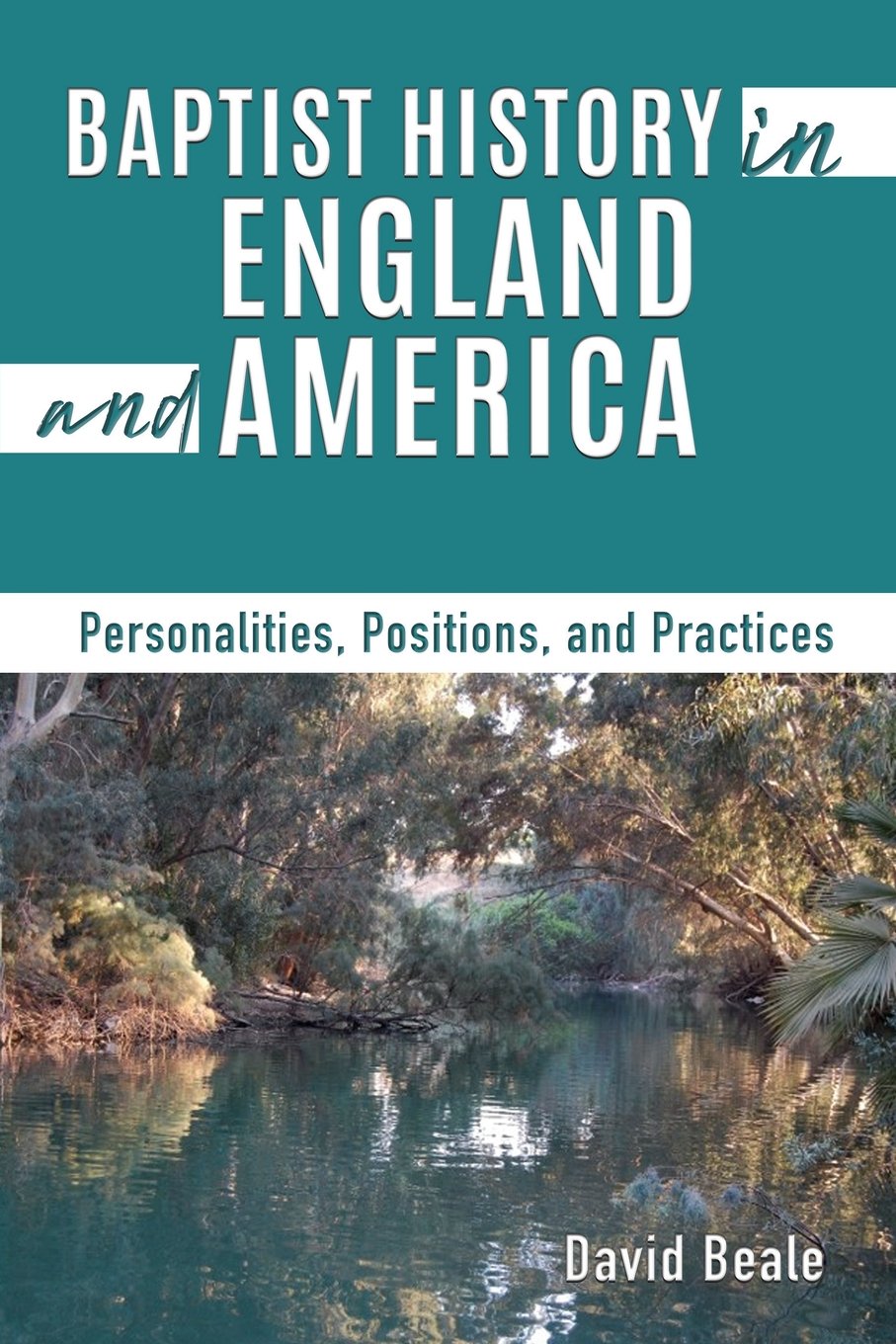A Book Review from Books At a Glance
By Anthony Chute
David Beale has provided a helpful contribution to the many historical studies of Baptists in England and America. Beginning with a series of introductory essays, Beale cites the origins of the Baptist movement in England when a former Anglican minister, John Smyth, further refined his ecclesiology to require believer’s baptism for all church members. Beale dismisses Landmarkism (the theory of Baptist church successionism) on a number of fronts before proceeding to detail the rich history of how Baptists began to thrive amidst persecution by English authorities, including Thomas Helwys, who financed the return of the first Baptists to England and was arrested shortly thereafter. Beale’s subsequent description of Helwys’s Declaration of Faith, arguments for religious liberty, and last will and testament is a fine example of the book’s subtitle, providing the reader with insights into the personal life and theological position of leading Baptist figures.
Beale’s coverage of the Baptist movement in England extends from the beginnings of the General Baptist movement in the early seventeenth century to the Down Grade Controversy towards the end of the nineteenth century. His treatment of the first hundred years of General Baptist thought reveals the difficulties of a nascent movement defining itself with theological precision while at the same time being driven by forceful personalities. Thus the comparative analyses of Matthew Caffyn and Daniel Taylor’s influence is instructive regarding the need for sound, biblical confessions of faith. Beale continues with an overview of the Particular Baptists, which includes detailed information on Henry Jacob, John Lathrop, and Henry Jessey, the first three pastors of the famed “J-L-J” church. Included within this discussion is an examination of the impact in which aberrant movements – such as Seekers, Quakers, Ranters, Levellers and Fifth Monarchists – had on these early Baptists. Beale concludes that their theological influence was limited, although common opinion at the time associated all Baptists as equally troublesome. The story then concentrates on key Baptists figures such as Hanserd Knollys, William Kiffen and Benjamin Keach. Readers who are not familiar with older controversies associated with the Baptist movement will likely appreciate Beale’s focus on accusations of antinominanism against Knollys, issues of open communion with Kiffen, and debates over hymn singing with Keach. The remaining chapters on English Baptist history highlight the key elements of the First and Second London confessions, examine the evangelistic impact of John Gill and Andrew Fuller, and describe the mission and ministry of William Carey and Charles Spurgeon, respectively.
The section on Baptists in America occurs past the midway point of the book, thus indicating a somewhat limited examination of the place and time when Baptists have thrived the most. The beginnings of the Baptist story in America is similar to that of English Baptists, starting as it does with an unsettled founder (Roger Williams) and continuing with notable elements of persecution. Despite these setbacks, Beale records the sacrificial efforts of John Clarke, Henry Dunster and Thomas Gould in providing a Baptist witness within a hostile culture. The narrative continues by describing Elias Keach’s organizational abilities, which introduced a more cooperative spirit among Baptists, and highlighting the work of Morgan Edwards, who became at the time America’s premiere Baptist historian. Coverage of the late seventeenth and early nineteenth century focuses on the quest for religious liberty, as displayed through the work of Isaac Backus and John Leland. Beale notes that Baptist growth was not necessarily hindered during times of persecution, most notably among the Separate Baptists in Virginia; yet the reality of religious liberty unleashed opportunities for considerable growth and were capitalized upon through the work of Adoniram Judson, Luther Rice, and John Peck. The combined work of this trio of Baptist missionaries led to the formation of the Triennial Convention, which served as the connecting point for local Baptist churches to support mission work at home and abroad. Beale concludes the section on Baptists in America by focusing on theological issues arising from northern Baptist seminaries, which served as a precursor to the fundamentalist/modernists controversies of the early twentieth century. His coverage of such seminaries as Andover Newton, Colgate, Rochester, and Crozer, along with the University of Chicago Divinity School provides ample evidence that the turn of the century brought forth a change in theological perspective among a large segment of American Baptists. The reaction by fundamentalist Baptists, who concluded that it is better to be divided by truth than united in error, and the resurgence of Southern Baptists, who determined to reclaim the denomination by political means for theological ends, assures the reader that the Baptist movement can survive a hostile culture, even one of its own creation.
The strengths of this book include the attention to detail at various points, particularly by revealing little-known information of well-known Baptist figures. Bullet-point summaries occur frequently throughout the book, thus providing quick overviews of key arguments. Informative footnotes abound throughout and the bibliographies at the end of each chapter are robust. Beale also provides a helpful travel guide in the appendices, noting points of historical interest for Baptists in England and America. This book could have been strengthened by the inclusion of English Baptist history into the twentieth century, and a more detailed discussion of Baptists in America during the same period. However, the book is lengthy enough and informative in its own right to earn a place among the many helpful resources on Baptist life.
Anthony Chute is Professor of Church History and Associate Dean of the School of Christian Ministries at California Baptist University in Riverside, California.
